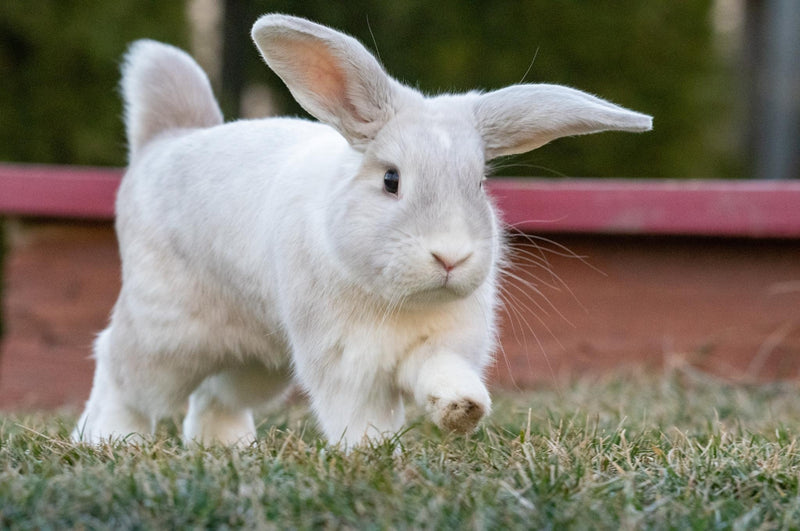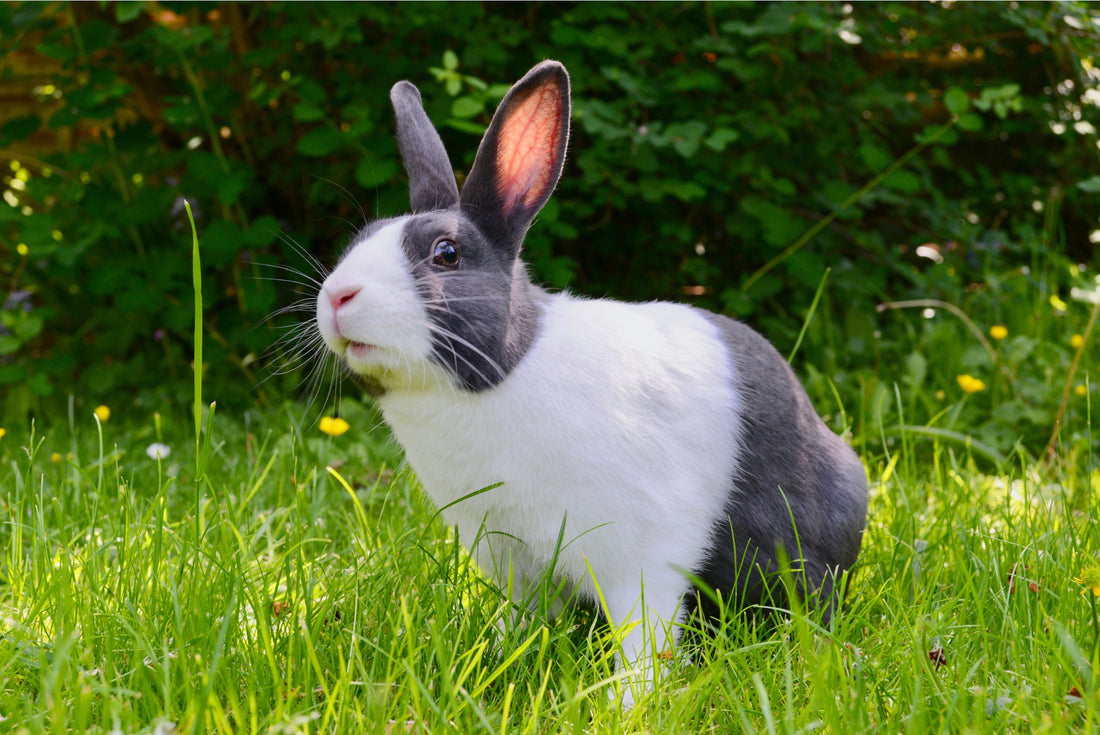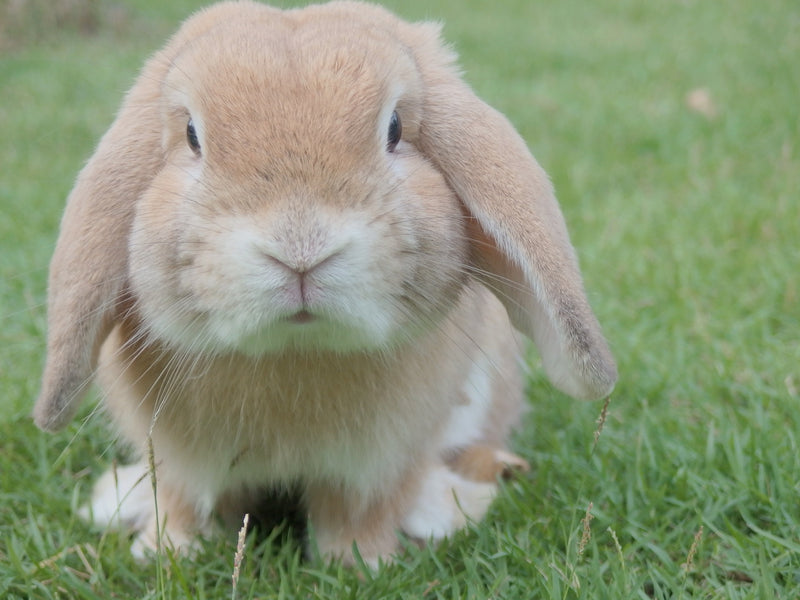
- 29 March 2022
- rabbits

The key to a happy and healthy rabbit inside and out, begins with your furry friend’s diet.
Rabbits are natural grazers, and hay should make up 85–95% of their daily diet. A hay-rich diet keeps your rabbit healthy, happy, and active.
At Newhay, our hay is grown on our family farm in Yorkshire, baled within 48 hours of cutting to lock in natural nutrition, and carefully processed to deliver premium quality in every bale, box, and bite. It’s gently dried and dust-extracted to support healthy digestion, natural foraging behaviour, and proper dental wear.
Hay isn’t just a filler – it’s the foundation of your rabbit’s diet. Feeding fresh hay every day helps to:
That’s why vets recommend feeding unlimited hay for rabbits every day.

We know it’s not always easy to tempt your bunny to choose hay over treats. That’s why our homegrown Timothy hay is both nutritious and irresistible:
Packed with natural flavour and goodness, our Timothy hay is exactly what rabbits love – and their happy hops and healthy appetites prove it. Small pets across the country give our hay the big paws up.


It should be:
Timothy hay is a high-fibre grass hay made from Phleum pratense, a perennial grass native to Europe. It’s considered a staple in the diet of rabbits and other small herbivores due to its nutritional profile
and dental benefits.
Rabbits require a diet high in fibre to support healthy digestion and to prevent gastrointestinal stasis. Timothy hay also helps wear down their constantly growing teeth, preventing dental issues.
Hay should make up about 80–90% of a rabbit’s diet. Provide an unlimited supply of fresh hay daily—rabbits should always have access to it.
Yes, but young rabbits (under 7 months) may benefit from alfalfa hay due to its higher calcium and protein. Once they mature, transition them to Timothy hay for long-term health.
Yes, mixing hays (like orchard grass or meadow hay) can encourage picky eaters and provide dietary variety. However, Timothy hay should remain the primary source unless advised otherwise by a vet.
Try different cuts, brands, or mix in small amounts of aromatic herbs (like mint or dandelion). Ensure the hay is fresh and not stored in airtight containers that can cause dampness or mould.
Keep it in a breathable container (like a cardboard box or cloth bag) away from
direct sunlight, moisture, and extreme temperatures to maintain freshness.
Yes, some people are sensitive to the dust or pollen. If you have hay allergies, wear gloves and a mask when handling it, or consider low-dust or compressed hay products.
Absolutely. It's ideal for guinea pigs, chinchillas, and degus as well. Always consult species-specific guidelines for proper dietary needs.
Need more advice? We have lots of useful information to help you take the best care of your rabbit.